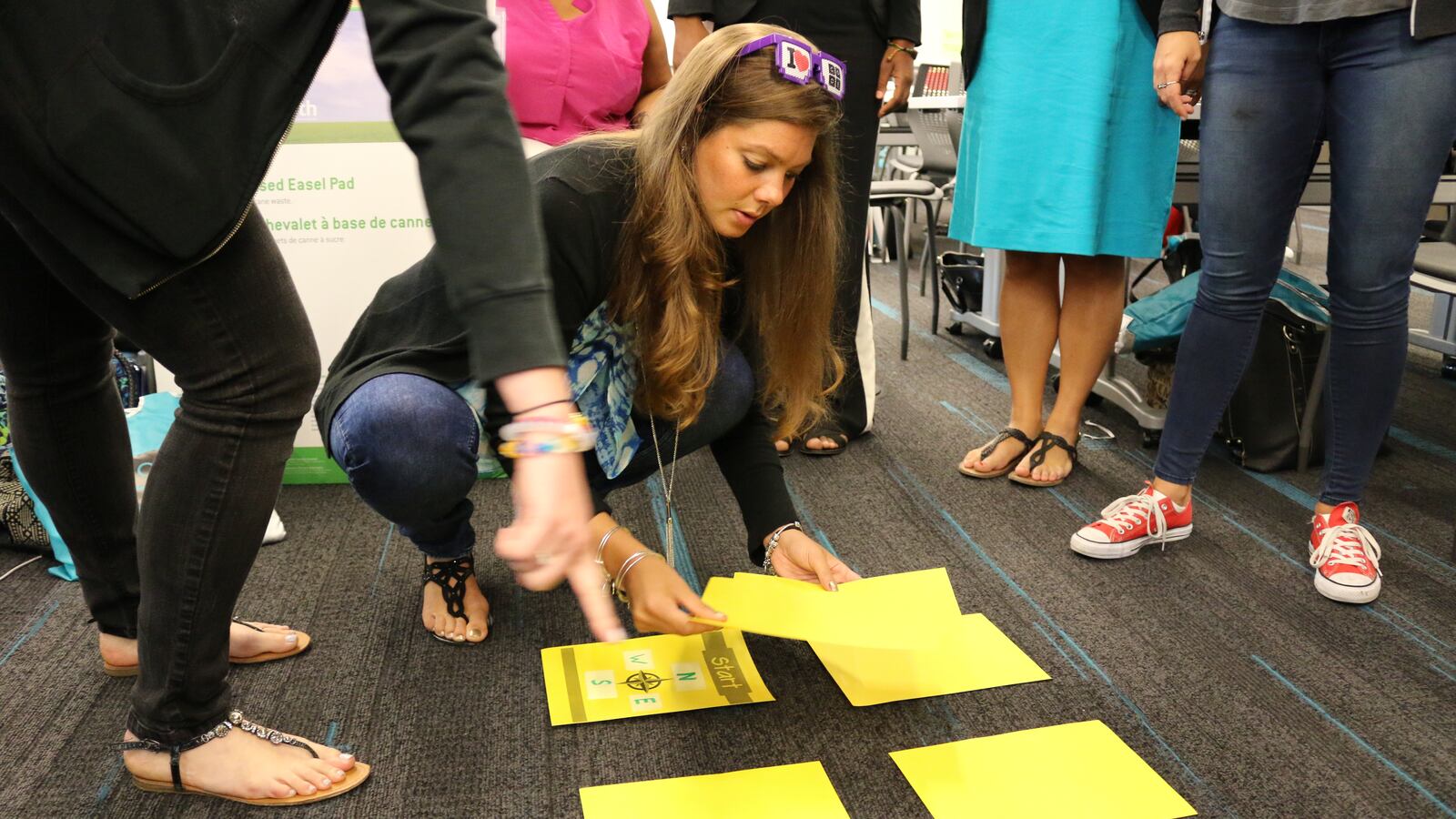In the center of the room, teachers circled around sheets of yellow paper laid out to form a grid. One volunteered to be the “controller,” another the “walker.” One by one, the controller put blue arrows on the ground. With each new arrow, the walker moved one square that direction. And when the last arrow was placed, the walker flipped over the yellow square she stood on to find a smiley face telling her the pair had reached their goal.
It might not seem like a lesson in computer science, but the walkers and controllers had just demonstrated an algorithm — a “list of steps you can follow to finish a task,” according to one of many hand-made vocabulary posters lining the walls.
Functions, conditionals and bits were among the big computer science concepts that were made simple enough for a kindergartner at a workshop for teachers held Tuesday. The program, part of the city’s Computer Science for All initiative, will include 11 elementary schools in its pilot year.
With the idea that anyone can learn to code, the program, known as the Software Engineering Program Jr., will bring computer science concepts to young students as a foundation for more advanced coding projects they might do later on.
“The goal is to get elementary school kids thinking about computer science, that it’s not something for other people, that it can be for them,” said Alana Aaron, the city’s director of elementary school computer science academics.
At the younger grades, students will mostly work with concepts in so-called “unplugged activities,” ones that Aaron said will get them up and moving. The yellow-and-blue tile exercise, for example, allows students to “program” each other to learn about listing steps to accomplish a task. Another activity on Tuesday had participants clap or cheer depending on what kind of card was drawn — a lesson in conditional statements. And a third used the song “Little Bunny Foo Foo” to teach about functions, pieces of code that represent a given set of steps.
The program received 112 applications for the pilot. The 11 schools selected have done varying levels of work in computer science education, though none have schoolwide programs.
The full Computer Science for All initiative will reach 232 schools in all five boroughs. The schools applying for the program were required to submit plans for outreach to groups traditionally underrepresented in computer science, including female, black and Hispanic students.
“There is a misconception in computer science, in particular, that there are only certain people who really get it,” schools Chancellor Carmen Fariña said at Tuesday’s workshop. And then there are “those of us who may not get it but are willing to learn.”

